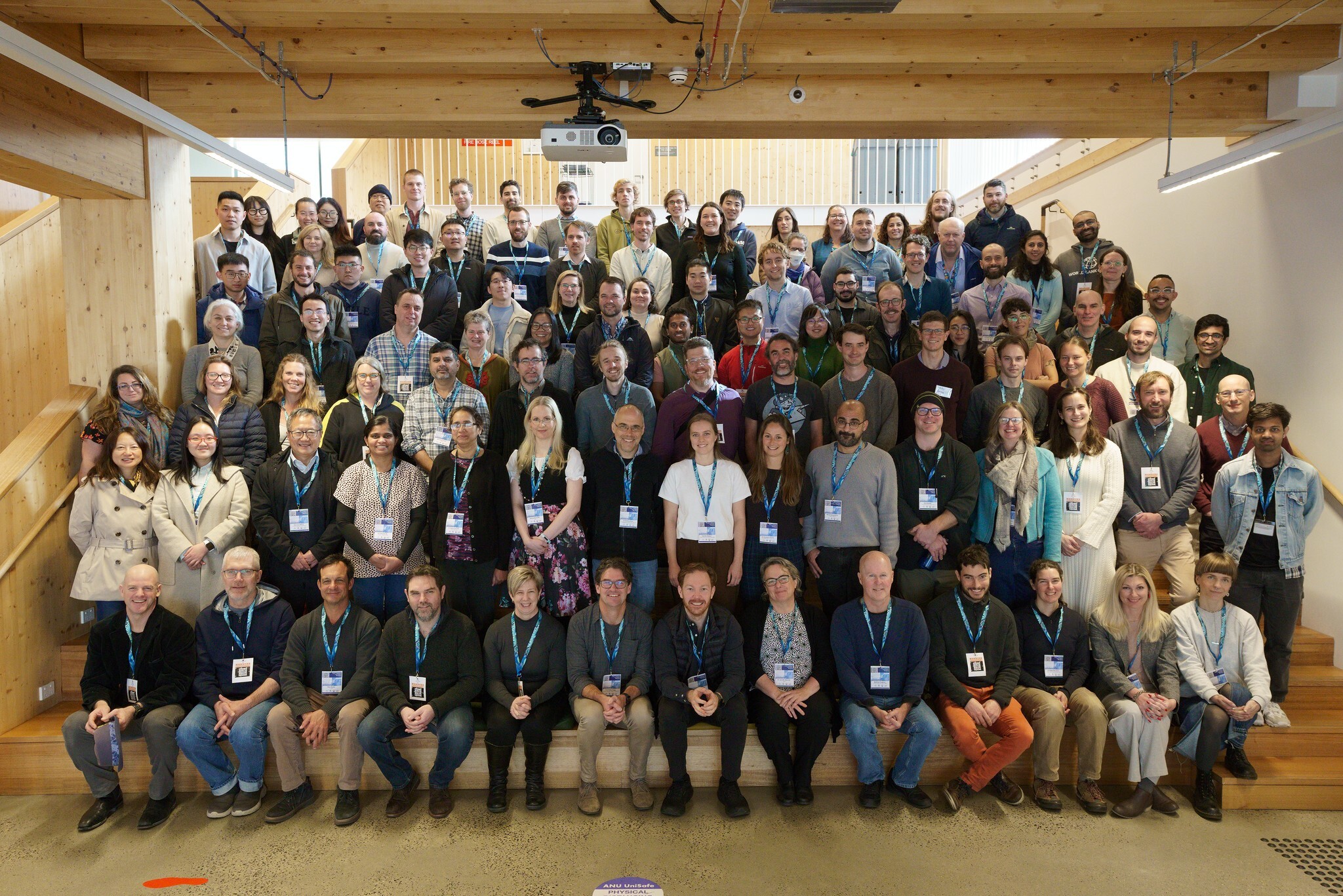Participants submerged themselves in every aspect of ocean research, including topics as diverse as bluebottles’ behaviour, pollution, forecasting, machine learning, fisheries, remote sensing, ocean dynamics, Antarctic sea-ice loss and many more.
This joint workshop of the Consortium for Ocean-Sea Ice Modelling in Australia (COSIMA) & Australian Coastal and Oceans Modelling & Observations (ACOMO), brought together Australia’s experts from diverse disciplines and research organisations to share ocean knowledge and collaborate.
The Ocean Modelling and Observations Workshop was organised by two national infrastructures that support research in ocean observations and modelling in Australia: IMOS and Australia’s Climate Simulator (ACCESS-NRI), both enabled by the Australian Government’s National Collaborative Research infrastructure Strategy (NCRIS).
The workshop started with a beautiful Welcome to Country by Ngambri-Ngunnawal custodian of the Canberra region Paul House, highlighting the importance of respect and community.
This was followed by an introduction to the workshop by the IMOS and ACCESS-NRI Directors, who highlighted the importance of bringing together ocean modellers and observers, along with their supporting infrastructures for advancing ocean science and improving our ability to predict and manage this Earth system.
IMOS Executive Director, Dr Michelle Heupel, highlighted “respect for this country and this planet is what brings us all together to talk about the oceans as a collective. This joint workshop serves as a crucial platform for researchers in marine science, ocean modelling, and observations to address the massive challenges we are facing”.
“We are linking two different research communities that look at the same problems from different perspectives. Feedback from models and observations improve both and we really need to integrate them. This joint workshop could be the platform where the crucial connections and collaborations between the two communities start to happen”, said ACCESS-NRI Director, Professor Andy Hogg.
The three exciting days of poster sessions, talks, breakout discussions and of course one to one conversation at meal breaks featured 31 engaging talks, 63 insightful posters, 24 lighting talks and 3 invited keynote speakers.
The first keynote speaker, CSIRO’s Dr Jennifer Skerratt, kicked off the meeting talking about a decadal assessment of the eReefs Platform compared with field observations in the Great Barrier Reef.
Day 2 started with keynote speaker Dr Jan Zika, from the University of New South Wales, exploring the fascinating question: is numerical mixing in ocean models a solved problem?
On the final day, keynote speaker Dr Catherine Vreugdenhil from the University of Melbourne, gave a fantastic talk entitled “The effects of ocean dynamics on the melting of ice shelves: a fine scale numerical simulation approach”.
Professor Matthew England from UNSW, who attended the meeting, said “Australian needs world-class ocean predictions alongside a better understanding of how our oceans are changing, from the open ocean to the nearshore. Bringing together the bluewater and coastal ocean communities in this way, to explore our common objectives and research platforms, was an outstanding initiative”.
See Full program and Abstract booklet here.
